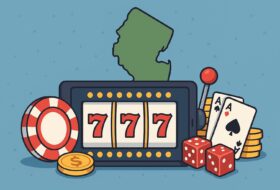
The online gambling industry is facing an impending generational issue when it comes to marketing. Gen Z is a different audience than Gen X, yet iGaming operators often take their lead from retail casino marketing, which is still mostly geared towards the latter.
Younger players’ emotional triggers are different. Their game play is more experiential. Their attention spans are shorter. That’s why it’s important to get the marketing right, right from the start. This was an opinion reiterated by several speakers at the recent CasinoBeats Summit in Malta.
If regulated online gambling operators engage their customers, they’ll keep coming back. Bettors who return increase the bottom line. So app engagement is the key to operator revenue, said Alexis Wicén, CEO and co-founder of Unibo, speaking at the summit.
The conference, hosted by Sports Betting Community (SBC), included Wicén’s comments during a July 14 session titled Gamification – The Language of Loyalty.
This is part of an ongoing series of articles examining marketing and customer engagement in iGaming. Recent installments have covered app engagement in broad terms, and what the market leader BetMGM is doing to improve in that regard.
Gez Z is coming of gambling age, while millennials move on
The Pew Research Center defines Gen Z as those aged 9 to 24. Most of that age group can’t legally gamble yet, but in many states, the legal age to play the lottery is 18.
That means 40% of Gen Z can already buy lottery tickets, though only 20% can legally gamble online or at a casino. That number goes up each year, however. According to research released in March by the National Council on Problem Gambling (NCPG), gambling is already a popular activity among elder Gen Z individuals.
The median age of online gamblers is 34. On average, online gamblers represent the youngest group of bettors, NCPG found.
At the same time, millennials are aging out of the online gambling audience. About 40% of millennials are older than the median online gambler. The oldest millennials, by Pew Research’s definition, are turning 40 this year.
CasinoBeats speakers revealed how targeting this audience is completely different from capturing the attention of a 44-year-old Gen Xer. That is who, according to NCPG, represents the median retail casino visitor.
The good news for online gambling operators is young bettors have a long life ahead of them. Investments made in courting them now will pay dividends over the long term. It requires a change in thinking, however.
‘A completely different species’
Even before making offers to players, it’s important to determine who will be the best long-term bettor. It’s not necessarily the one that spends the most money up front, said Barry Patrick, head of VIP at Roobet. He was speaking on July 15, during the SBC session Can Operators Still Reward Customer Loyalty.
Operators don’t want a customer that overspends and then quits the game. They want a lifetime customer. By definition, Gen Zers will have long lifetime value. That’s one of the reasons they’re the new audience for online gambling operators to target.
Ichiban COO Jennie Strandberg said current loyalty programs don’t apply “at all” to the Gen Z gambler.
Strandberg, who is herself a millennial, added:
“It’s a completely different species.”
Strandberg cited a statistic that Gen Z players have half of the attention span of millennials, at seven seconds. They bounce off of apps and sites faster too, with an average of three taps or clicks instead of the five of millennials.
How can operators adjust to the expectations of Gen Z?
Operators need a strategic shift. Gen Z-ers don’t just want to consume content. They want to help create the content, as well as to interact with it. They also want it to be personalized and relevant to them.
Furthermore, Gen Z is especially attuned to corporate ethics. They want to know they’re supporting companies that are “trying to do good,” not just in it for the money.
Strandberg said:
“Needless to say, the casino industry doesn’t have the greatest reputation with these people today.”
The upshot of this is that operators may have seek out influencers, rather than following a traditional VIP model. The goal is to foster sustainability and lifetime value from customers. There may still be big-spending VIPs, but influencers can help operators gain additional market share, said Strandberg.
That’s because, compared to their older cohorts, Gen Z bettors care about the journey, the experience of betting. Not just winning.
Strandberg summarized:
“They have completely different trigger points from what we’re used to.”
For Gen Z, app engagement is about the experience
Gen Zers may crave experiences, but all bettors like a smooth ride.
Online gamblers are seeking a fast, exciting game and fast cashout, said Karamba Vice President Joel Momigliano. He spoke during the loyalty session about how much customers value service.
To that end, Karamba will answer any live chat question in 30 seconds, provide an average cashout time of six hours and streamline the Know Your Customer process. Using back-end technology, including customer relationship management (CRM) tools, to tailor customer journeys to players’ personal interests is something gamblers also appreciate, he added.
Another panelist for the loyalty session was Gali Hartuv, head of customer engagement and training at 10bet. He agreed about the personal touch.
While ever-tightening privacy laws can make it harder for operators to personalize options to player interests, his company did manage to add special touches during the lockdown. Hartuv said 10bet gifted gardening equipment to bettors who took up the hobby during the pandemic. During games, fans got team shirts.
Those personalized touches remind players of the operator and bring them back to the app, he said.
This is the way it should be, said Hartuv’s moderator. Arjan Korstjens, a marketing consultant with Explayner BV, opined that loyalty “should be given, not taken” from customers.
He later added:
“It’s getting down to personal attention.”
Gamification can enhance app engagement
The concept of gamification has made its way into just about every industry.
IBM used gamification to implant its brand into consumers’ memories, to help with its products’ long sales cycles.
In 2013, Target Marketing magazine reported on the tactic, in an article that now belongs to Adweek:
“In 2009, when the rest of the direct marketing world was complaining about yet another shakeup of the Internet ecosystem, saying social media marketing and gamification weren’t tied to a return on investment (ROI), Carter and Armonk, N.Y.-based IBM proved them wrong. INNOV8 2.0, now “CityOne: A Smarter Planet game,” was the No. 1 lead generation asset for WebSphere software.”
Gamification session moderator Russell Mifsud – Director | Head of Gaming at KPMG – said across all industries, gamification will be a $40 billion business by 2024.
Lessons from outside the iGaming world
The widespread nature of gamification makes it useful to look outside the online casino bubble.
Ichiban CPO Chris Scicluna Farrugia said if the tactic applies to gambling, it will fit the eight core drivers for game players. If it also fits the mechanics of the game in question, operators should experiment with it to see how it works. However, he cautioned operators not to let gamification overtake why gamblers play in the first place, or those core drivers.
He said:
“We want to give the player an emotional cost of leaving our product.”
That cost is exiting a social community. Online gambling sites need to build that community with social features. That’s one of the reasons some online poker apps offer throwables, which are a gamified approach to encouraging social interaction.
Meanwhile, many other forms of gamification involve tactics online gambling operators are using to increase app engagement.
Mifsud said that’s because Gen Z players expect a richer experience, more immersive game play and glossier interfaces.
He added:
“It is said that the younger generations tend to enjoy being entertained, rather than winning.”
Promotions aren’t just about dollars
Gamification also allows operators to give players non-monetary rewards, said Philippe Joos, head of product and innovation at Napoleon Sports & Casino. That’s a bonus in such a regulated environment, he said.
The main way he’s seen operators use gamification is in rewarding players with points as they’re pursuing what they really want to win, Scicluna Farrugia said.
Joos cautioned operators not to simply “copy-paste” tactics from top operators, because being a “copycat” kills creativity and innovation.
He concluded of imitating industry-leading operators:
“In the end, it will kill you.”
The thrill of gambling isn’t gone
Ultimately, gambling is about emotion.
Ellmount Group CPO Stefania Mincu – a gamification session panelist – said player data can provide insight into how to engage customers, but it’s not the whole story.
She said players like to think they beat the system. That they’re special. That they triggered a rare feature. Gamification helps prolong the feeling of being special, Mincu said.
Plus, it’s not just Gen Z online gamblers who think this way. Mincu said it’s now “the world, overall,” that is, a cultural shift driven by, but no longer limited to the younger generation.





